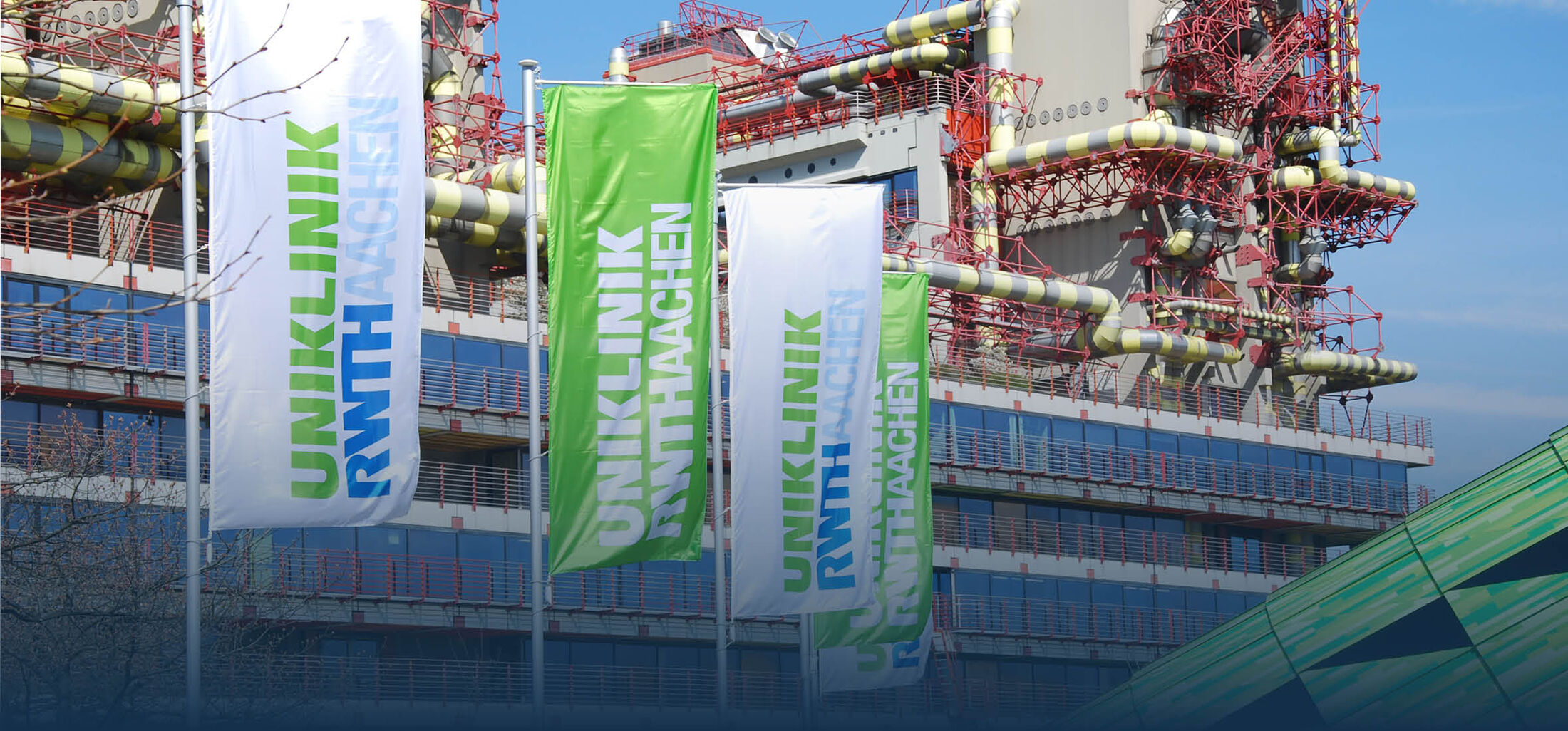Section: Knowledge and Safety Management
The Knowledge and Safety Management Section is an interdisciplinary research unit of the Department of Anesthesiology at RWTH Aachen University Hospital. For our research, a simulation center that is unique in Germany provides us with state-of-the-art simulators, state-of-the-art multimedia technology and our own observation rooms, enabling us to model a maximum care hospital and its processes.
Excellent training of medical staff is a central component of a functioning healthcare system. Optimal patient care can only be ensured with highly qualified and well-trained personnel. For this purpose, medical knowledge must be imparted in optimal teaching, learning and training methods. Developing, evaluating and optimizing these is an important part of our research. In numerous projects, we support the specialist clinics of the UK Aachen in the development and scientific analysis of teaching and training concepts. In addition, we develop strategies to better communicate health knowledge to patients in order to strengthen their health literacy.
Risks and threats to patient safety lead to deaths, preventable medical complications, longer hospital stays and higher costs. A World Health Organization (WHO) analysis found that medical errors and adverse events in healthcare occur in 8-12% of all hospitalizations. Consistent application of patient safety improvement strategies would prevent an estimated more than 3.2 million hospitalization days and 95,000 deaths each year in the EU alone. Improving patient safety is one of the central concerns of our work. To this end, we conduct research on key safety-critical aspects such as interface management, safety culture and process optimization.
Innovative concepts and new technologies are only successful if they are accepted and used by the target group. Acceptance research considers the human factor in the development and introduction of innovations. The aim here is to identify and consider human needs and potential barriers to use at an early stage.
A well-functioning team must have a good understanding of its work processes as well as of the skills and capabilities of its members and must coordinate them optimally in order to complete work as efficiently as possible. A team set up in this way reacts flexibly to new challenges and can manage its tasks well even in difficult situations and under adverse circumstances.
Healthcare is a demanding sector that places high demands on its actors. Serious decisions often have to be made in the shortest possible time on the basis of a complex and difficult-to-understand set of facts. At the same time, technical innovations open up unique new opportunities. New technologies allow an optimal use of data and information, which benefits patients and at the same time relieves staff. The development and testing of such technological concepts is performed in our Living Lab, a real laboratory for application-oriented research. Trained staff and spatial and material infrastructure are available for this purpose. Complex scenarios can be examined in a medically oriented training setting with regard to usability, improved action sequences, and consequences for staff and patients.
A central method of our research work is simulation. Here, specific clinical scenarios are worked through in a realistic setting by the relevant professional groups. For the simulations we have a fully equipped simulation centre at our disposal, in which all procedures of a maximum care hospital can be reproduced. All simulations are accompanied by specially trained personnel and discussed in a debriefing session. In this fashion, critical elements in the examined processes can be identified and solutions can be worked out.
